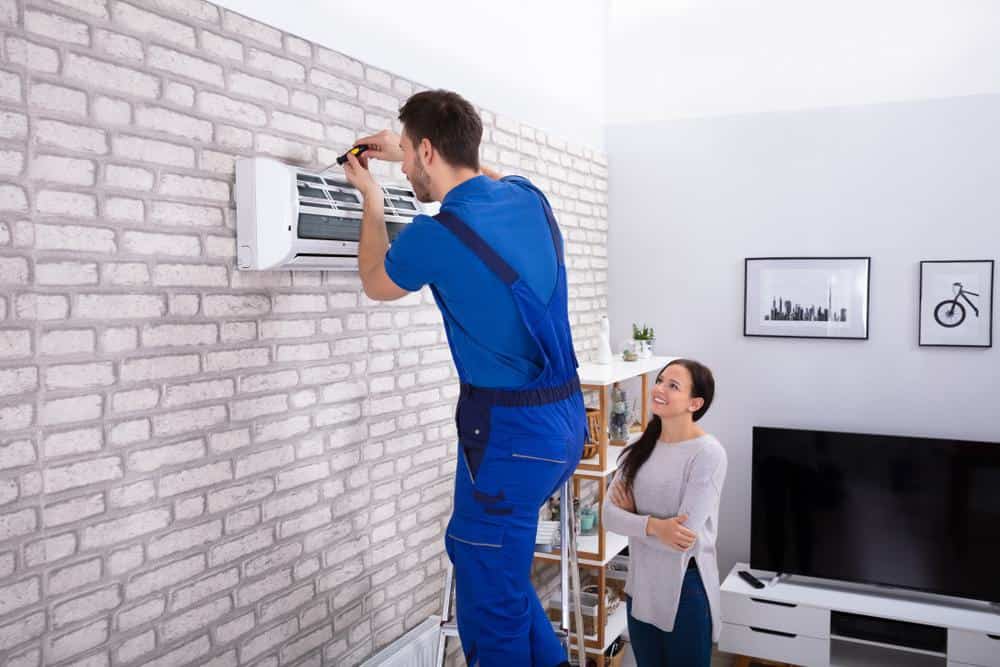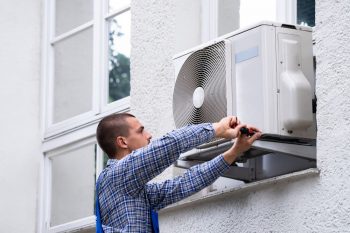
The maintenance of your air conditioning system is crucial for its longevity and efficiency. One key aspect of this maintenance is checking the oil in the split AC compressor. This task may seem daunting, especially if you’re not a professional HVAC technician. However, with the right knowledge and tools, you can gain a basic understanding of the process. This comprehensive guide will provide you with detailed information on how to go about this process, the tools you’ll need, and the importance of regularly checking the oil in your split AC compressor.
Checking the oil in a split AC compressor involves several steps: First, turn off and disconnect the AC system from the power source. Then, locate the AC compressor and inspect it for signs of oil leakage. Access the service port on the compressor using specialized tools. Finally, use a tool or a custom-made dipstick to check the oil level and condition. Remember to take precautions such as disconnecting the power supply, working in a well-ventilated area, and wearing safety gloves and goggles. It’s recommended to have a professional perform this check to ensure accuracy and system health.
Why Is It Important To Check The Oil In A Split AC Compressor?
Compressor oil, also known as refrigerant oil, serves several vital functions in your AC system. These include:
- Lubrication of the compressor’s internal components, reducing friction and preventing wear and tear.
- Acting as a sealing agent for rubber components such as hoses and seals.
- Absorbing heat and maintaining optimal temperature within the AC system.
- Preventing electrical damage in some hybrid vehicles.
- Ensuring system efficiency, which can save energy and reduce costs over time.
- Extending compressor longevity by preventing unnecessary strain on the system.
Signs That Indicate The Need For An Oil Check
Several signs may indicate that your split AC compressor oil needs to be checked. These include:
- Unusual humming noises from the air-conditioning system.
- Wearing and scoring on rods and bearings.
- Faint creaking sounds or a burnt oil smell.
- Leaks in the refrigerant.
- Burning smells and visible smoking.
If you notice any of these signs, it’s advisable to consult a professional HVAC technician for further inspection and assistance.
Tools Needed For Checking The Oil In A Split AC Compressor
If you decide to check the oil in your AC compressor, you’ll need the following tools:
- A specialized tool or a custom-made dipstick to check the oil level.
- A pressure gauge to check the pressure and make necessary adjustments.
- Protective gear, such as gloves and safety goggles.
- A wrench or socket set to remove or loosen any components.
- A multimeter to diagnose any problems with the compressor.
Steps To Check The Oil In A Split AC Compressor
Here are the general steps to check the oil in a split AC compressor:
- Turn off the AC system: Ensure the AC system is turned off and disconnected from the power source to avoid any accidents.
- Locate the AC compressor: The compressor is usually located outside the building as part of the outdoor unit.
- Inspect the compressor for signs of oil leakage: Check for any signs of oil leaks, rust, or physical damage.
- Access the service port: To check the oil level, you will need to access the service port on the compressor. This may require specialized tools and knowledge.
- Check the oil level and condition: Use the tool to check the oil level and condition.
Precautions When Checking The Oil In A Split AC Compressor
When checking the oil level in your split AC compressor, consider the following precautions:
- Disconnect the power supply to avoid any electrical hazards.
- Use the necessary tools and materials for the task.
- Work in a well-ventilated area.
- Wear safety gloves and goggles.
- Consult the owner’s manual for specific instructions.
- Avoid overfilling the compressor with oil.
- Seek professional help if needed.
How Often Should You Check The Oil In A Split AC Compressor?
While there’s no specific interval for checking the oil in a split AC compressor, regular inspections by a trusted mechanic can ensure your AC system’s longevity and efficiency.
The Consequences Of Neglecting Oil Maintenance
Neglecting oil maintenance in your AC compressor can lead to insufficient lubrication, oil loss, oil buildup in the expansion valve, compressor damage, and reduced system performance.
In conclusion, while checking the oil in a split AC compressor can be done by an individual, it is generally recommended to have a professional handle the task. This ensures the accuracy of the process and the overall health of your AC system.
Frequently Asked Questions
What type of oil should I use for my split AC compressor?
The type of oil used depends on the make and model of your AC system. Consult your owner’s manual or contact the manufacturer for specific recommendations.
Can I use any tool to check the oil level in my split AC compressor?
No, you’ll need a specialized tool or a custom-made dipstick to accurately check the oil level in your compressor.
How often should the oil in my split AC compressor be changed?
This can vary depending on the usage and the manufacturer’s recommendations. However, as a general rule, the oil should be changed every few years or after a significant repair.
What should I do if I find an oil leak in my AC compressor?
If you find an oil leak, it is recommended that you contact a professional HVAC technician. They can help identify the source of the leak and provide appropriate solutions.
What is the role of a multimeter in checking the oil in a split AC compressor?
A multimeter is used to diagnose electrical problems in the compressor. It checks the voltage, current, and resistance levels, which can help identify any malfunctioning components.
Is it safe to check the oil in my split AC compressor myself?
While it is possible to check the oil yourself, it’s important to take safety precautions. This includes disconnecting the power supply, wearing protective gear, and following the manufacturer’s instructions. If you’re not comfortable performing these tasks, it’s best to hire a professional.












